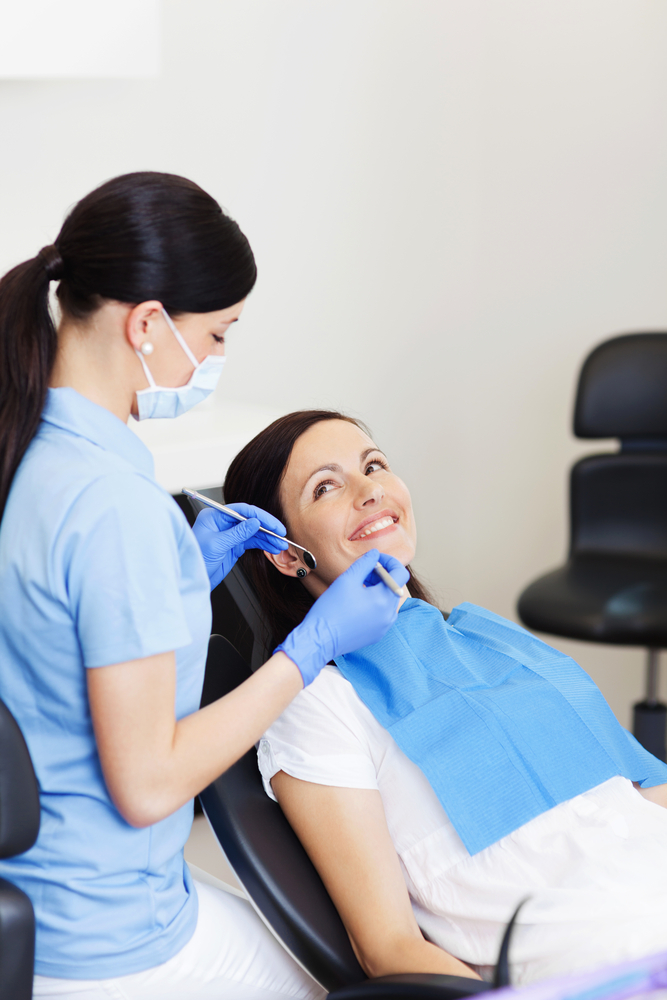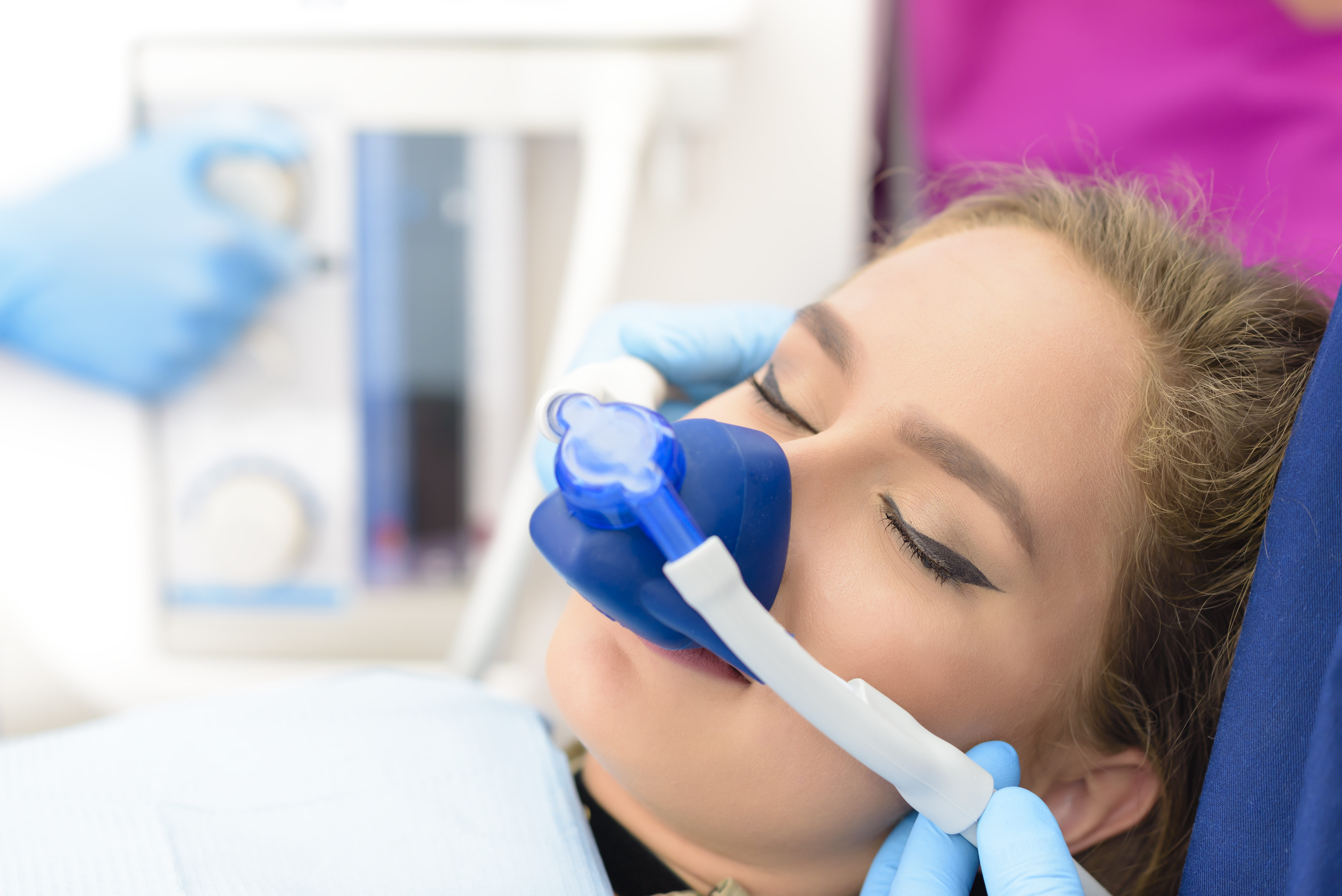Sedation
Dentistry
Sedation Dentistry in Pembroke, ON
Relax During Your Dental Visits With Sedation Dentistry
At Parkview Dental in Pembroke, ON, Dr. James Munro takes pride in offering advanced dental sedation methods to ensure a relaxed and comfortable experience for patients. Dr. Munro and our experienced team specialize in sedation dentistry, providing a revolutionary approach to various dental services. Explore the world of sedation dentistry with Dr. Munro through the comprehensive guide below or by calling (613) 735-2336.
What is Sedation Dentistry?

Benefits of Sedation Dentistry
There are several benefits to dental sedation, such as:
- Overcoming Dental Anxiety: Many individuals face dental anxiety, leading them to avoid essential dental care. Sedation dentistry is a powerful tool to overcome these fears, allowing patients to receive necessary treatments without unnecessary stress.
- Enhanced Comfort: The medications used in sedation dentistry create a state of deep relaxation, enhancing overall comfort during dental procedures. This is particularly beneficial for individuals with a low pain threshold or heightened sensitivity.
- Amnesia Effect: Some sedation methods, like nitrous oxide, induce temporary amnesia regarding the details of the procedure. This contributes to a more positive and less stressful overall experience.
- Time Efficiency: Sedation dentistry often allows dentists to perform multiple treatments in a single visit. This can be particularly advantageous for individuals with busy schedules, minimizing the need for multiple appointments.
- Post-Treatment Recovery: Depending on the sedation method, recovery times vary. Oral sedation may require a few hours, while nitrous oxide has a quicker recovery, enabling patients to resume normal activities shortly after the appointment. General anesthesia, reserved for complex cases, may involve a brief hospital stay for monitoring.
Candidacy for Sedation Dentistry
At Parkview Dental in Pembroke, ON, Dr. James Munro and our skilled team prioritize your comfort and well-being. Let’s explore the factors that determine your candidacy for sedation dentistry.
- Dental Anxiety or Fear: If you experience dental anxiety or fear, regardless of the reason, you’re a potential candidate for sedation dentistry. This option is tailored to provide a stress-free environment for individuals who may otherwise avoid essential dental care.
- Low Pain Threshold or Sensitivity: Individuals with a low pain threshold or heightened sensitivity may find sedation dentistry beneficial. The medications induce a deep state of relaxation, enhancing overall comfort during dental procedures.
- Difficulty Staying Calm: For those who find it challenging to stay calm during dental visits, sedation dentistry offers a solution. It promotes better patient cooperation, ensuring a more relaxed and cooperative atmosphere for both the patient and the dentist.
- Complex Dental Procedures: Candidates for sedation dentistry may include individuals undergoing complex dental procedures such as dental implant placements or periodontal treatments.
- Health Considerations: It’s crucial to discuss your medical history during the consultation to ensure the chosen sedation method aligns with your health needs.
Our Sedation Dentistry Options
Oral Sedation Dentistry
Oral sedation involves taking medication by mouth, inducing a deep state of relaxation. Administered at least one hour before the procedure, this type of sedation method ensures complete calmness without causing sleep.
Although you’ll remain conscious, the chances are high that you won’t remember the procedure afterward. Plan for someone to drive you to and from the appointment due to potential nausea and dizziness, which typically subside within 24 hours.
Nitrous Oxide

General Anesthesia
Reserved for complex procedures like dental implants or periodontal treatments, general anesthesia is the most potent form of sedation option. Dr. Munro, one of the few dentists in Pembroke with hospital privileges for general anesthesia, prioritizes patient safety during these intensive treatments. A brief hospital stay may be required post-treatment to monitor potential side effects after your dental appointment.
Aftercare for Sedation Dentistry Effects
Following your sedation dentist’s procedure, prioritize aftercare for a smooth recovery. Here’s a guide to aftercare for the effects of sedation dentistry.
- Post-Procedure Monitoring: After your sedation dentistry procedure, our team will monitor your vital signs to ensure a safe and gradual awakening. You may spend some time in a designated recovery area where our staff will observe your condition.
- Transportation Arrangements: Depending on the sedation method used, you may experience lingering effects that affect your ability to drive. Arrange for a trusted friend or family member to drive you home after the appointment, particularly if oral sedation is administered.
- Rest and Recovery: Allow yourself time for rest and recovery after the procedure. The calming effects of sedation may linger, and it’s advisable to avoid strenuous activities for the remainder of the day.
- Hydration and Nutrition: Stay hydrated and opt for light, easily digestible meals. Avoid consuming heavy or spicy foods immediately after the procedure, especially if you experience any lingering nausea.
- Monitoring for Lingering Effects: Some sedation methods, such as oral sedation, may result in residual effects like dizziness or grogginess. Monitor for these effects and refrain from operating heavy machinery or engaging in activities that require heightened alertness until fully recovered.
- Follow Post-Procedure Guidelines: Dr. Munro will provide specific post-procedure guidelines tailored to the sedation method. Follow these instructions meticulously to ensure optimal recovery.
Frequently Asked Questions
Does insurance cover the dental sedation cost?
One common concern for individuals considering dental sedation is whether insurance covers the associated costs. While coverage can vary, many dental insurance plans include sedation as part of procedures. Check with your insurance provider to understand the extent of coverage for a dental procedure and sedation.
Will I be awake during my procedure with dental sedation?
Safety is paramount in dental sedation procedures. The medications used are clinically proven and administered with precision to ensure a safe and comfortable experience for patients. Before undergoing sedation dentistry, your dentist discusses your medical history to tailor the sedation method to your needs, prioritizing your well-being.
Is dental sedation safe?
A common misconception about dental sedation is that you’ll fall asleep during your procedure, though this isn’t the case. If you choose nitrous oxide or oral sedation, you’ll remain awake and responsive. However, you’ll be deeply relaxed and likely won’t remember your treatment later. This state of consciousness is often referred to as “twilight sleep.”
For especially intensive procedures, we also offer general anesthesia. This is the only form of sedation at our practice that will allow you to enter a state of unconsciousness. Dr. Munro is one of only a few dentists in the Renfrew County area who offer hospital privileges.
How long does dental sedation last?
The duration of dental sedation varies based on the method. It’s always a good idea to have someone accompany you to your visit to give you a ride home. Recovery times vary, and your dentist ensures thorough post-sedation care for your oral health and well-being.
